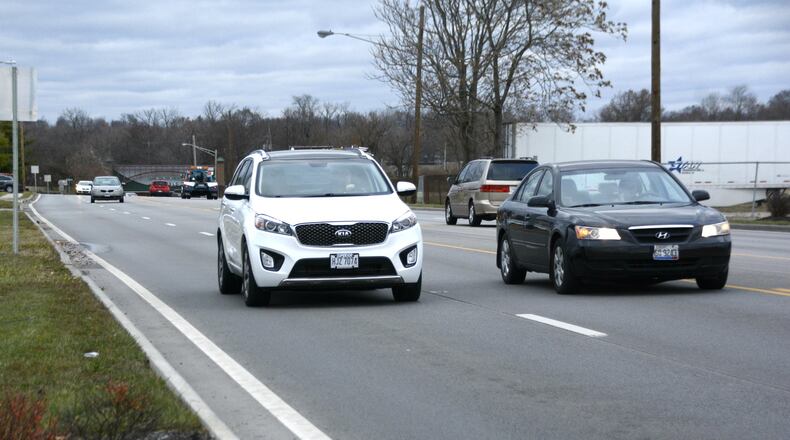Fairfield Public Works Director Dave Butsch showed City Council last week what a 10 percent cut to the annual paving program could look like. Annually, about $3.2 million is allocated to the paving and concrete program, the annual road maintenance program. Annually, the city will repave around 23 lane miles, most of which are residential streets. That’s a 17.5-year cycle to get to all 406 lane miles of roads.
LOCAL NEWS: Fairfield seeking nearly $3.2M for road, trail work: What it would do
Road paving is a large annual expense for any municipality, and as budgets are being scrutinized during the COVID-19 crisis, so is the amount allocated to paving programs.
Before the budget constraints, many municipalities struggled with an annual paving program. The city of Hamilton asked voters this past primary election for a 10-year, 3.9-mill property tax levy to repair the city’s streets. Voters narrowly passed the levy, according to unofficial election results.
“This is where we don’t want to be,” Butsch said about getting to the point where a levy is a consideration.
Butsch calls the city’s current road condition “good,” but said the earnings tax allocation “is not enough” as the city also has nearly $800,000 going to pay off debt on the Bypass Ohio 4 project that expires in 2030. He said a transfer of funds, which historically happens but are not guaranteed, is needed.
If the city does cut the roads budget, the condition of the streets could go down proportionally, Butsch said. If it is cut by 10 percent, he said it could take about 23 years to tackle the city’s roadways, and the lane miles could grow if new streets are constructed.
“I would consider that a poor level of service if this is where we would end up,” he said.
The city has a portion of the city’s earnings tax earmarked for road paving and concrete work, but if it ever gets mixed in with other funds, “it’s difficult to get it back,” said Butsch. He said many cities fund road maintenance with general fund revenues, and often times local governments don’t allocate enough to funds, and may not have a paving cycle.
The city of Fairfield is considering memorializing a plan to ensure the necessary money is allocated annually for road maintenance.
LOCAL NEWS: Planned Dunkin’ restaurant moving forward in Fairfield: What to know
Fairfield City Councilman Mark Scharringhausen said based on past experiences, where the city didn’t stick to a consistent paving plan.
“(We have) to have a plan and have it memorialized,” he said. “It’s easy to lose focus and it’s easy to divert our attention from what we think is a very necessary, core service — and that’s the maintenance of our street.”
Councilman Tim Abbott said worst-case scenarios outline by Butsch “really highlights where we don’t want to be.”
“We need to do that now,” he said of memorializing annual street maintenance fund transfers. “Our streets are really one of our top priorities, in my opinion, to keep that level of streets. I work in and see other communities that have lost their street system, and it’s very expensive and very painful. And talk about an economic deterrent, it’s potholes in streets.”
About the Author

